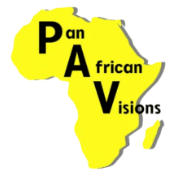Global Partnerships for Sustainable Agriculture and Food Security

WE ARE INCREASINGLY CONNECTED
The Brazil Africa Forum 2025 returns for its 13th edition, shining a spotlight on sustainable agriculture and food security—fundamental pillars for global prosperity. More than a conference, it is a dynamic hub where leaders from government, business, academia, and civil society connect to exchange ideas and drive meaningful change. As a key platform for Brazil-Africa cooperation, the event fosters dialogue and promotes initiatives that strengthen resilience and sustainability. By bringing together global efforts, it paves the way for innovative solutions to shared challenges.
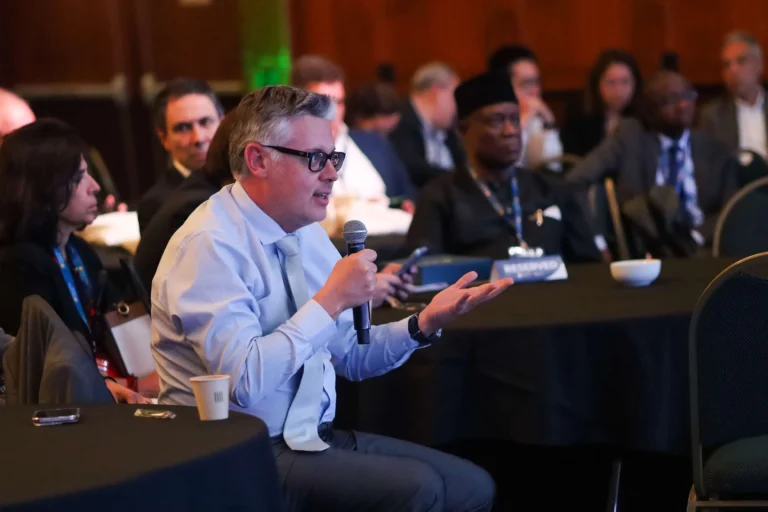



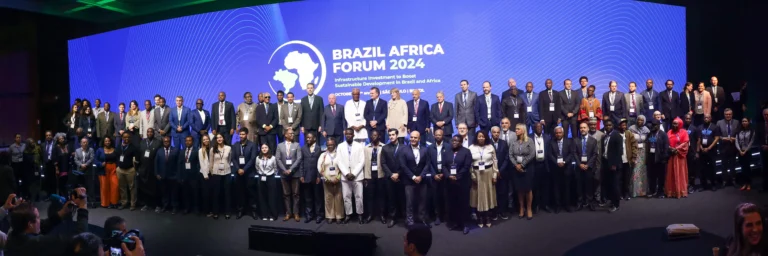


SPEAKERS

Alberto Martinhago Vieira
Director for Agrobusiness at Banco do Brasil
Mr. Alberto Martinhago Vieira has been a career employee at Banco do Brasil for over 20 years. He holds a degree in Business Administration, a specialization in Customer Experience Management from ESPM, and an MBA in Finance, Auditing, and Controllership from FGV. Since 2024, he has served as Director of Agribusiness and Family Farming, responsible for Banco do Brasil’s agribusiness strategy. He is also a Fiscal Council Member
at Cassi and a Board Member at BB Consórcios.

Aniss Bouraqqadi
Agronomy Director at OCP Nutricrops
Mr. Aniss Bouraqqadi is the Agronomy Director at OCP Nutricrops, and brings 25 years of experience across Agronomy, Marketing, R&D, and Sustainability to transform agriculture in Africa and beyond.
A strategist, agronomist, and cross-cultural leader, he connects science, market insight, and field realities to deliver solutions customized to farmers’ needs, enhancing productivity and sustainability at scale. His mission: to shape site-specific, sustainable agronomic approaches that address soil and climate challenges while creating long-term value for farmers.
Throughout his international career, Aniss has leveraged deep technical expertise, a pan-African vision and global partnerships to turn agricultural innovation into lasting impact.

Aristide De Balla Moro Sidibé
CEO at Mali Airlines SA and Former Special Advisor to the Transitional President, Head of State of Mali
Mr. Aristide De Balla Moro Sidibé is an economist and executive leader dedicated to advancing Mali’s economic transformation and global connectivity. After serving as Special Advisor to the President of the Transition, Head of State of the Republic of Mali, he currently serves as the inaugural Chief Executive Officer of Mali Airlines SA, the newly established national airline.
With professional experience in both Africa and the United States, he also manages programs in educational data, technology, and compliance at Aldine ISD (Houston, TX), and co-founded Innovative CEREBRUM LLC (Dover, DE), where he serves as Vice President for Business Development. Mr. Sidibé has served as a Renewable Energy Consultant for Project Gaia Inc. (Gettysburg, PA), and is a certified Nonviolent Crisis Intervention Trainer. He is also a Board Member of Nyetaaso N’Tjiba Kati Faladie, a microfinance institution promoting financial inclusion in Mali.
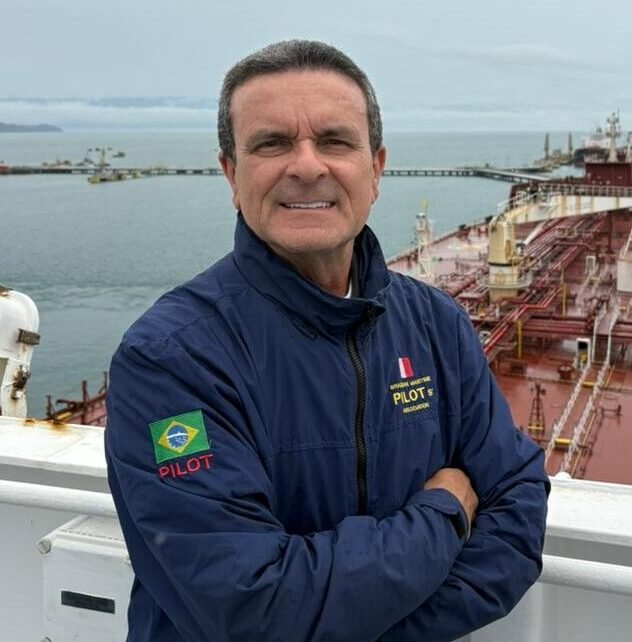
Carlos Alberto de Souza Filho
Ship Pilot and Member of the Technical Council of the Brazilian Maritime Pilots’ Association
Mr. Carlos Alberto de Souza Filho is a retired Commander (Frigate Captain) of the Brazilian Navy. He holds a Bachelor’s degree in Naval Sciences from the Naval School (1983), a postgraduate degree in Naval Communications from the Almirante Wandenkolk Instruction Center of the Brazilian Navy (1987), and a Master’s degree in Naval Sciences from the Brazilian Naval War College. Throughout his military career, he served as Commander of the Navy Radio Station in Campos Novos, Commander of the Patrol Vessel Graúna, and Aide-de-Camp to the President of Brazil. Since 2010, he has worked as a Maritime Pilot at the Ports of Santos and São Sebastião, having served as President of both pilot associations during the 2019–2020 term. He currently serves as Director of Institutional Relations at the São Paulo Pilots Association.

Carlos Sérgio Sobral Duarte
Secretary for Africa and the Middle East of the Ministry of External Relations of Brazil
Carlos Sérgio Sobral Duarte is a Brazilian diplomat who is currently the Secretary for Africa and the Middle East at the Ministry of Foreign Affairs of Brazil. He has a long career in the diplomatic service and has served as the Ambassador of Brazil in India, Chile, and headed the Permanent Mission to the International Atomic Energy Agency in Vienna. He also was Deputy Permanent Representative of Brazil to the United Nations in New York. He has also been actively involved in various issues related to nuclear disarmament and non-proliferation.

Caroline Ribeiro
Journalist at Diário de Notícias
Caroline Ribeiro began building her professional career in television journalism as a reporter for TV Jangadeiro, an SBT affiliate in Ceará, and for TV Verdes Mares, a Rede Globo affiliate in the same state. At TV Verdes Mares, Caroline Ribeiro quickly took on the roles of script editor and anchor for CETV 1ª Edição (1st Edition), remaining in that post for almost three years. In 2015, Caroline Ribeiro moved to Portugal, where she had the opportunity to coordinate communications for the Brazil Africa Institute (Instituto Brasil África), an NGO based in Brazil and Ghana. This allowed her to interact with key international stakeholders, such as UN agencies, the WFP, the World Bank, and the African Development Bank.

Daniel Balaban
Director of the World Food Programme Centre of Excellence against Hunger in Brazil (WFP)
Mr. Daniel Balaban is Economist, MBA in Finance, Specialist in Public Budget and Master in International Relations. Since August 2011 he is the Director of the World Food Program Centre of Excellence against Hunger in Brazil. Balaban acted for over ten years in the areas of finance and planning in business consulting firms and foundations of welfare facilities. In 1994, he became Finance Analyst of the Brazil’s Ministry of Finance, having served as Economic Adviser to the Secretary of the Treasury and National Coordinator for Economic Studies of the Secretariat of National Treasury. In 2003, he served as Special Adviser to the Secretary of the Economic and Social Development of the Brazil’s Presidency of the Republic. From March 2006 to August 2011 he was the President of the Brazilian National Education Development Fund (FNDE), responsible, among other actions, for the National School Feeding Program, that feeds more than 47 million students around the Country, and acted in the creation of the Brazilian School Feeding Law. He chairs the school feeding network for Latin America. He is a Board Member of the Global Child Nutrition Foundation. He is also member of the World Economic Forum’s Global Agenda Councils.

Eduardo Castro
Journalist
Graduated in journalism from Facasper/SP (1996), Eduardo Castro specialized in documentaries and long-form reporting with courses at Voice of America (VOA) and NPR, in addition to internships at CNN and BBC. Castro began a career in 1995 at Grupo Bandeirantes, working as a reporter, producer, editor, anchor, and news director. Castro served as a correspondent for CNN Radio and VOA in Brasília and, later, in Washington. In 2007, Castro served as an advisor to Minister Franklin Martins at Secom, contributing to the creation of Brazil’s public communication law. Between 2008 and 2010, Castro worked at Empresa Brasil de Comunicação (EBC) as a journalism manager. In 2010, Castro was a consultant for TV Miramar in Mozambique and an EBC correspondent in the country. In 2011, Castro was appointed general director of EBC. Throughout this career, coverage has included significant events such as 9/11, American and Brazilian elections, the funeral of Pope John Paul II, as well as major sporting events like World Cups and the Olympics, and presidential trips to Arab countries and China.

Enio Verri
Brazilian General Director of Itaipu Binacional
Enio Verri is a Brazilian politician, economist, and professor. He is the current director-general of Itaipu, the largest hydroelectric power plant in the world. He was also a federal deputy for three terms and a state deputy for one term. He was elected state deputy in 2010 and federal deputy in 2014, 2018, and 2022. He was the leader of the PT in the Chamber of Deputies from 2020 to 2021. He resigned from the Chamber of Deputies in March 2023 to become the Director-General of Itaipu, appointed by President Lula.

Jean-Marie Kananura
Chief Investment Officer at Rwanda Finance Limited
Mr. Jean-Marie Kananura is the Chief Investment Officer of Rwanda Finance Limited, the company promoting and developing Rwanda as a leading financial destination for international investment and cross-border transactions in Africa. Jean-Marie joined Rwanda Finance as a Business Development Manager in charge of the Central and West African region. Jean-Marie is a finance professional with more than 15 years of experience in the Banking sector.
Prior to joining Rwanda Finance, Jean-Marie worked with Euroclear Bank Brussels, where he worked in Asset Servicing and Securities Post-Trading Operations focusing on Project management, Business Process management, and Continuous Improvement.
Jean-Marie holds a Master’s Degree in Business Administration from ICHEC Brussels Management School and an Executive Master’s Degree in Finance from Solvay Brussels School.

João Bosco Monte
President of the Brazil Africa Institute
João Bosco Monte is founder and president of the Brazil Africa Institute and Secretary for International and Institutional Relations of Fortaleza. PhD in Education (UFC) with postdoctoral studies at UnB, he researches African integration and South-South Cooperation. International consultant, author and professor, he created the Brazil Africa Forum. Twice awarded the Order of Rio Branco, he contributes to global debates on development and food security.
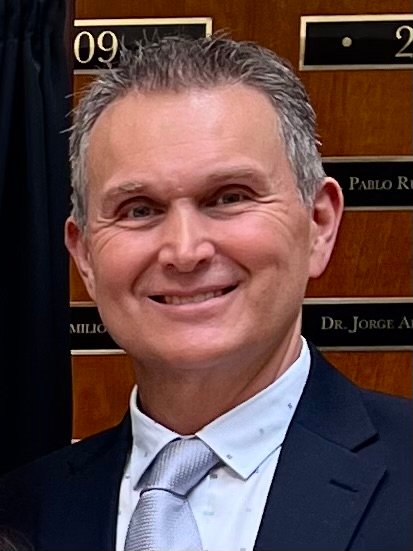
Joaquin Lozano
Head of the Continental Liaison Office for the Americas at CGIAR
Mr. Joaquin Lozano, from Mexico, has more than 25 years of experience in international cooperation, development, political economy and public policy. In the agriculture and rural development sector, he has most recently been Head of the Continental Liaison Office for the Americas and Regional Director for Latin America and the Caribbean at CGIAR since end 2021, and formerly Director of the Latin America and the Caribbean Division at UN’s IFAD, based in Rome, until 2018. He had joined IFAD in 2012 as Sub-regional Coordinator and Programme Manager for Central America, based in Guatemala. In 2014, he received the Extraordinary Leadership IFAD Staff Award. He has also been Senior Evaluation Consultant for FAO in Latin America. At the Inter-American Development Bank (IDB), he was Lead Specialist for Financial Institutions and Country Coordinator for Mexico. In his country’s Federal Government, he served as Head of the Infrastructure Policy and Public-Private Partnerships Unit at the Presidential Office and held other leading positions at the Ministry of Finance and at the National Council for Science and Technology. Prior to joining CGIAR, he had been working at Tecnológico de Monterrey, Mexico´s leading private university and amongst the top 5 in the region, in charge of the institution´s strategic alumni engagement, and liaising joint projects with key international organizations, like the World Bank. He lectures in Macroeconomics and has been awarded the Excellency Diploma. He holds a PhD and a Master of Science in Political Economy from the London School of Economics in the United Kingdom, a Bachelor’s degree in Economics from Tecnológico de Monterrey, and continuous education Diplomas from Harvard University and the University of Vienna.
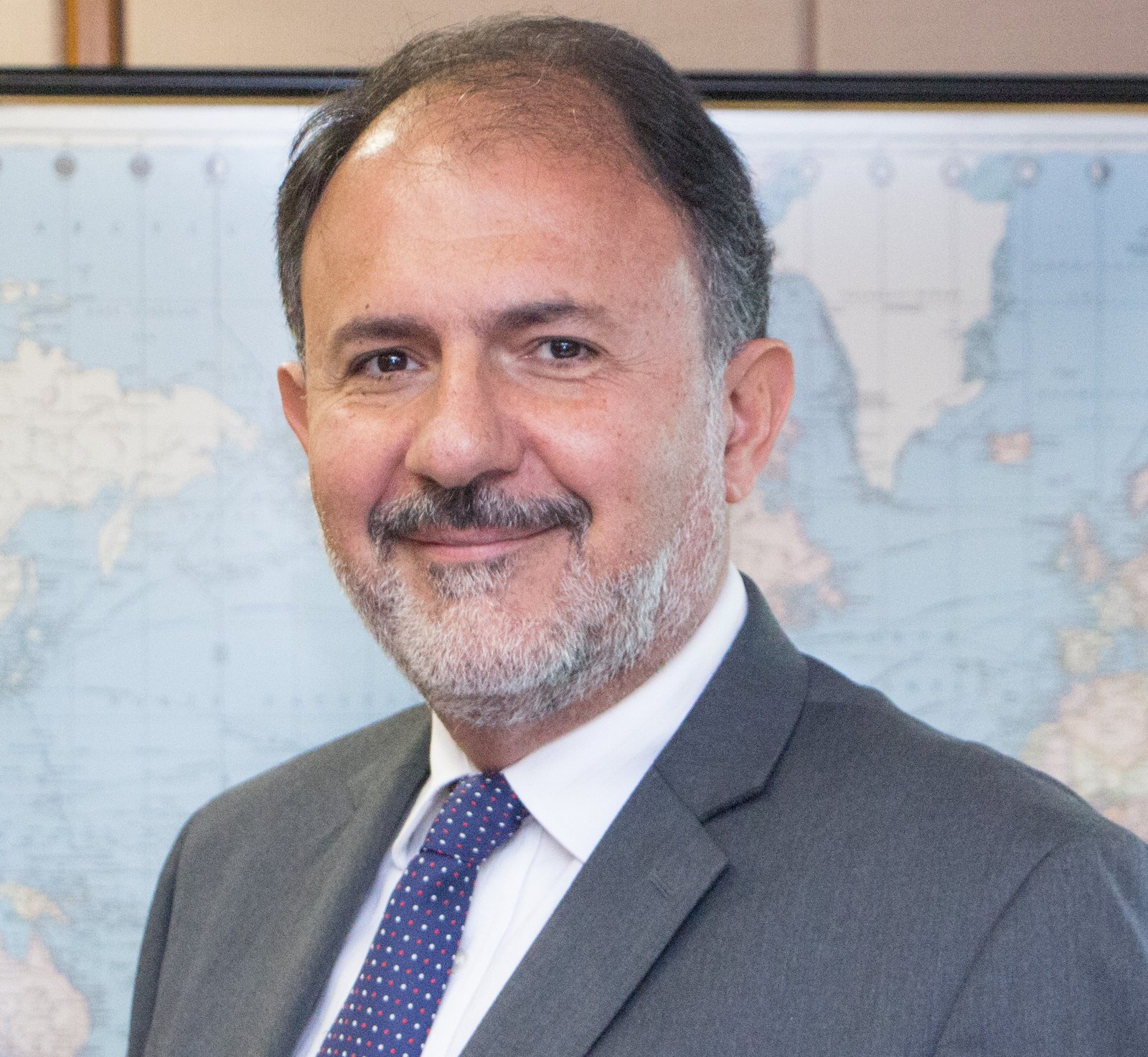
Jorge Arbache
Professor at the University of Brasília and Former Vice-President of the Development Bank of Latin America and the Caribbean (CAF)
Mr. Jorge Arbache is an economist, professor at the University of Brasília, and the creator of the concept of powershoring, which advocates relocating energy-intensive industries to regions rich in clean and affordable energy, such as Latin America, to foster global decarbonization and sustainable industrial development. His career spans academia, government, multilateral organizations, and development finance. He served as Vice President of the Development Bank of Latin America and the Caribbean (CAF), worked at the World Bank and the ILO, and held senior positions in the Brazilian government, including Vice Minister and Chief Economist at the Ministry of Planning. A columnist for Valor Econômico and consultant on sustainable finance, he is a recognized voice in debates on the green transition, industrial policy, and Latin America’s role in global transformation.

José Graziano da Silva
Former-Director General of FAO
José Graziano da Silva has over 30 years of academic, professional, and political experience in food security and rural development. He served as Director-General of the Food and Agriculture Organization of the United Nations (FAO) from 2012 to 2019, after having conceived and led Brazil’s Zero Hunger program, initially as coordinator in 2001 and later as Extraordinary Minister of Food Security and Fight against Hunger in President Lula’s government starting in 2003. This effort culminated in 2014, when Brazil was removed from FAO’s Hunger Map, being recognized as the first developing country to achieve this milestone.

Leila Zorzetto
Executive-Director of DISAM Group
Leila Zorzetto is Managing Partner of Grupo Disam, with 28 years of dedication to the agribusiness sector. With a degree in Foreign Trade, she leads the management of CHD’S do Brasil, CHD’S do Brasil/China, Macrobio, and Disam, overseeing operations and developing growth strategies.

Luiz Fará Monteiro
Journalist for the Record TV Network; presenter and author of the "Blog Aviação" on the R7 news portal.
Luiz Fara Monteiro is a journalist at Rede Record nerwork. Previously worked as a political correspondent in Brasília, covering the three branches of the Republic. He also served as a correspondent in South Africa. He writes the Aviation column for the R7 Portal and is the anchor of the newscast Fala Brasil.

Luiz Lessa
President of Banco da Amazônia
Graduated in Accounting, with a specialization in Finance for Business Development and an MBA in Finance. In his 39-year career, he has held strategic positions in large companies in Brazil and abroad. An employee of Banco do Brasil, in Brasilia he was an Executive in the Distribution Area; in the Knowledge and Client Management Area; in the Bank Mergers and Acquisitions Area; Manager of the Corporate Strategic Board; Director of Business Development; and Vice-President of Retail and Channels in Miami (USA). He was Investment Manager at PREVI, in Rio de Janeiro, and most recently at BRASILSEG (BB SEGURO) in São Paulo. He has also served as a board member of the companies Rio Grande Energia, CELPE, COELBA and NEOENERGIA. He was a director of the Brazil-United States Chamber of Commerce (Florida) and the Brazil-Korea Chamber of Commerce and Industry.

Mara Luquet
Journalist, Founder and CEO of MyNews channel
A journalist specializing in finance and economics, Mara Luquet is the founder and CEO of the first YouTube journalism channel, the MyNews channel, considered by Google to be a global reference for journalism on YouTube.
She is the editor-in-chief of Legado magazine. With 4,000 subscribers, the magazine’s mission is to offer quality and relevant content on the perpetuation of family, environmental, cultural, and financial heritage.
Mara Luquet was a reporter for Gazeta Mercantil and Exame magazine, an editor at Veja magazine and the Folha de São Paulo newspaper, where she created the “FolhaInveste” section and the “FolhaInveste em Ação” simulation, in partnership with Bovespa. She also created the “Eu & Investimentos” section for the Valor Econômico newspaper and ValorInveste Magazine, which she edited until 2005.
She worked as a personal finance columnist for TV Globo, GloboNews, and CBN radio before deciding to found the MyNews channel on YouTube. She is the author of several books on personal finance, such as “O meu guia de finanças pessoais” (My Guide to Personal Finance) and “Infidelidades financeiras” (Financial Infidelities).

Marcello Rolim Coelho
Policy and Industry Specialist at the Brazilian National Confederation of Industry (CNI)
Mr. Marcello Rolim Coelho holds a degree in Civil Engineering from the University of Brasília. He currently serves as a Policy and Industry Specialist at the National Confederation of Industry (CNI). He has extensive experience in international cooperation focused on technology transfer and professional training with countries in Africa and the Caribbean.

Marcos Brandalise
Founder and CEO of BrazAfric Group of Companies
MARCOS R.G. BRANDALISE is a Brazilian entrepreneur residing in Africa for the past 37 years and is the founder of the BrazAfric Group of Companies (BGC) and LEAF Africa. The group has close to three decades of uninterrupted performance in the provision of Pre- & Post-Harvest Equipment solutions including value addition, in East and Central Africa, with offices in Kenya, Uganda, and Rwanda, partnerships in Tanzania, DR Congo, and Burundi. Over the years, MRGB has developed several projects to improve food production in Africa. As a result, LEAF Africa was established to carry out such projects as the “Integrated African Model Farm (IAMF)”. The IAMF project aims at the production of food on a large scale, largely based on the success of Brazilian agribusiness and utilizing the most recent developments in tropical agriculture, particularly with an emphasis on the environment, progressive replacement of chemicals, and full mechanization. His career demonstrates a commitment to innovation, technology transfer, and fostering agribusiness success in Africa.

Maria Beatriz Bley Martins Costa
CEO of Green Rio
Maria Beatriz Bley Martins Costa is a partner and president of GREEN RIO / GREEN LATIN AMERICA, an international event on Bioeconomy, Innovation, and the Circular Economy held in Rio since 2012. She was director of Planeta Orgânico and coordinated the BIOFACH fair in Brazil from 2003 to 2010. She worked as a consultant for SEBRAE on Forest-Based Cosmetics from the Amazon and has been a speaker at the German-Brazilian Economic Meeting since 2014. In 2017, she launched the German-Brazilian Bioeconomy Workshop during Green Rio. She received the Tiradentes Medal in 2019 and organizes events on sustainability in Brazil, South America, Germany, France, and the USA.

Miguel Azevedo
Head of Investment Banking, Middle East and Africa at Citigroup
Miguel Azevedo is currently the Head of Investment Banking at Citi for the Middle East and Africa (excluding South Africa), where he is responsible for leading and executing transactions in various sectors, such as energy, infrastructure, telecom, consumer, and financial services.

Mônica Monteiro
Vice President of Sales and New Business at Times Brasil CNBC
Mrs. Mônica Monteiro currently serves as Vice President of Sales and New Business at Times Brasil CNBC, the exclusive licensee of CNBC, the world’s leading business news network. From 2019 to 2024, she held the position of Executive Director at BAND PAY TV, overseeing the channels Arte 1, Band Internacional, Band News, BandSports, Terraviva, and Smithsonian Channel, as well as the structuring and implementation of the channels Sabor & Arte, AgroMais, and Canal Empreender. She was the founding partner and owner of Cinegroup, a content and advertising production company specializing in the audiovisual sector, with offices in Brasília, São Paulo, Rio de Janeiro, and Cine Moçambique. From 1997 to 2019, she worked as an executive producer and project author for television series, documentaries, institutional videos, commercials, interactive media, and educational and entertainment programs, both nationally and internationally.

Paulo Gomes
Chairman of the Advisory Board of the Africa-South East Asia Chamber of Commerce
Paulo Gomes is CEO and founder of Orango Group Investment Corporation, a strategic investment company that focuses on sustainable development projects in Africa. He is also a global business leader, an active environmentalist, and a key political actor in Guinea Bissau. He has over 30 years of experience in sovereign and corporate advisory, working on issues related to international trade, natural resources, and development.

Paulo Teixeira
Minister of Agrarian Development and Family Farming of Brazil
Paulo Teixeira, Minister of Agrarian Development and Family Farming, is a lawyer and holds a Master’s degree in Law. He served as the Sub-Mayor of São Miguel Paulista from 1989 to 1992 and as Secretary of Housing from 2000 to 2004. In 2022, he was elected to his fifth term as a Federal Deputy for São Paulo. He is one of the authors of the R$ 600 Emergency Aid cash transfer scheme enacted during COVID-19 pandemic, as well as laws such as the Vale-Gás program (an initiative of the Brazilian federal government created to help low-income families
cope with the rising costs of cooking gas), the suspension of evictions, and support for artists and cultural workers (the Aldir Blanc Law). He is also the rapporteur for the new Civil Procedure Code, which includes an article that mandates public authorities’ participation in the mediation of conflicts over urban and rural land. He dedicates his life to fighting for justice, for a Brazil with employment and income, free from hunger, racism, and violence against women and the LGBTQIA+ community.

Philippe Rubini
Investor
Philippe Rubini is a French entrepreneur and engineer. He created Grupo Fictor in 2010, with the vision of transforming cities into more efficient, inclusive, and resilient places. He has established partnerships with public and private entities, such as the World Bank, the African Development Bank, and the City of Fortaleza.

Pious Bismarck Dadzie
Chairman of Piglo Group
Mr. Pious Bismarck Dadzie is an experienced banker and entrepreneur with over 16 years of professional experience. He currently serves as Chairman of Piglo Plus Limited, Piglo Energy Limited, Fuelit Energies Ghana Limited, and La PEL International Limited, in addition to being a majority shareholder and director of several companies in the energy and commodity trading sectors.
His 15 years in leading African banks have provided him with extensive experience in client relationship management, corporate finance, and credit risk management. Pious has a diversified background across sectors such as telecommunications, construction, real estate, oil and gas, and financial services. He holds a bachelor’s degree in Economics and Political Science from the University of Ghana and is currently pursuing a Ph.D. in Finance.

Radaés Fronchetti Picoli
General Manager for Renewable Fuels at Petrobras
Mr. Radaés Fronchetti Picoli is the General Manager for Renewable Fuels at Petrobras, where he leads the company’s biofuels and low-carbon hydrogen divisions, working toward increasingly sustainable, accessible, and secure energy solutions. He holds a Master’s degree in Business Administration (Operational Research) from the Federal University of Rio Grande do Sul (UFRGS). Transitioning from the financial market to the energy sector 15 years ago, he has worked at Petrobras in the areas of International Portfolio, M&A, Refining, and Natural Gas, and currently in Renewables.

Reem bint Ebrahim Al Hashimy
UAE Minister of State for International Cooperation
Her Excellency Reem bint Ebrahim Al Hashimy has served as the UAE Minister of State for International Cooperation since 2016 and has overseen the Political Affairs Office of His Highness Sheikh Mohammed bin Rashid Al Maktoum since 2008. She led the UAE’s successful bid to host Expo 2020 Dubai, later serving as its Director General, and is now CEO of the Expo City Dubai Authority. H.E. Al Hashimy chairs the UAE National Committee on Sustainable Development Goals, Dubai Cares, and the Board of Trustees of Sorbonne University Abu Dhabi. She previously chaired the Federal Competitiveness and Statistics Authority and earlier served at the UAE Embassy in Washington, D.C. as Commercial Attaché and Deputy Chief of Mission. She holds a Bachelor’s degree from Tufts University, a Master’s from Harvard University, and a Doctorate from Tsinghua University.

Rodrigo Regis Galvão
Business Director at CEPEL Eletrobras
Rodrigo Regis Galvão is a specialist in energy transition, innovation, and strategic planning with over 15 years of experience in the energy and infrastructure sectors. An electrical engineer with a Master’s in Systems Engineering, a Ph.D. in Economics, and a specialization in Business Innovation. He has held leadership roles at Alvarez & Marsal as Director of Energy and Innovation, at the Itaipu Technology Park, as Business Director at CIBiogás, and previously as Vice President of Engineering in an energy storage solution at Eletrobras. Currently serves as Business Director and Head of Laboratories at CEPEL Eletrobras. His career includes leading projects in national and state levels for energy, biogas, and hydrogen plans, developing hydrogen investment strategies for major companies, and advising renewable energy funds with ESG-focused solutions. He has represented Brazil in international organizations such as the International Energy Agency and Mercosur, securing international cooperation and funding. Recognized for integrating technology, markets, and public policy, he has driven projects that combine economic value, sustainability, and innovation.

Stephen Yeboah
Founder and CEO at Commodity Monitor Limited
Mr. Stephen Yeboah is the co-founder and CEO of Commodity Monitor Limited, a trading, logistics and research company based in Accra, Ghana. Commodity Monitor provides contributions to the sustainable production, supply and consumption of commodities in Africa, including agriculture, mining, and oil and gas. He has more than ten years of experience in research and policy analysis in Africa’s extractive sector, agriculture, energy, climate and was a Research Fellow at the Africa Progress Panel (APP), a non-profit chaired by the late former UN Secretary General Kofi Annan, from 2013 to 2016.

Templar Kalundu Iga
Managing Partner at Preponderant Advisory
Mr. Templar Kalundu Iga is the Managing Partner at Preponderant, Canada’s leading Africa-
focused market entry advisory firm. Based in Toronto, he specializes in strategic lobbying,
government relations, and advisory services, helping organizations identify opportunities and
navigate policy and risk environments across emerging markets He also serves as Co-Chair of the Advisory Council for the Age Of Africa Annual Symposium, which, under his leadership, has become a key platform for dialogue between Canadian and African markets. Additionally, Mr. Kalundu Iga is the Executive Director of the Canadian Centre for African Affairs and Policy Research, a Toronto-based think tank dedicated to advancing strategic cooperation between Canada and Africa. In this role, he leads initiatives that build high-level networks, promote policy dialogue, and strengthen institutional ties between both regions enhancing innovative approaches to investment, governance, and sustainable development.
FOCUS SECTORS
Climate‑smart agriculture
Agroecology and biodiversity
Technological innovations
Food systems
Nutrition security
Youth and women empowerment
Water management
Investment and financing
Renewable energy
Logistics and infrastructure
Trade
Health
Capacity building
Family farming
Policy and governance
Research and development
FORMAT
Plenary sessions
Side events
Networking
Exhibition space
Interviews
Project launches
Venue
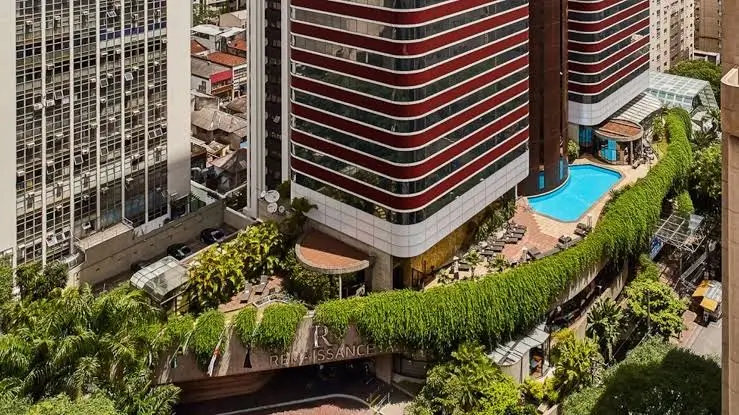
Renaissance Hotel
Located in São Paulo’s Jardins district, the Renaissance Hotel offers easy access to Avenida Paulista and the city’s cultural attractions.
 1200, Dom Luís Avenue, 404, Shopping Pátio Dom Luís – Meireles. 60160-230 Fortaleza, Ceara, Brazil
1200, Dom Luís Avenue, 404, Shopping Pátio Dom Luís – Meireles. 60160-230 Fortaleza, Ceara, Brazil
 12, Anmeda Street Roman Ridge PMB CT 173 Accra, Ghana
12, Anmeda Street Roman Ridge PMB CT 173 Accra, Ghana























